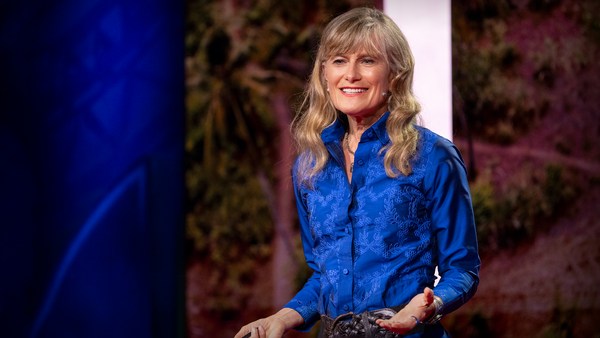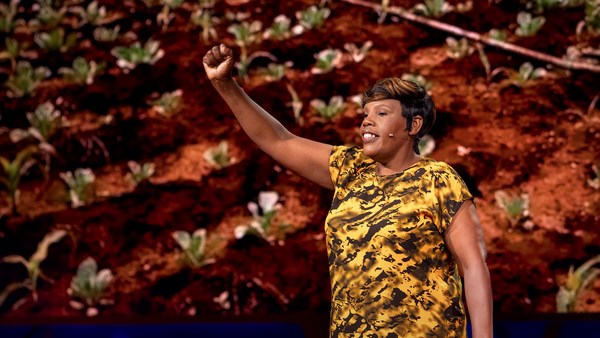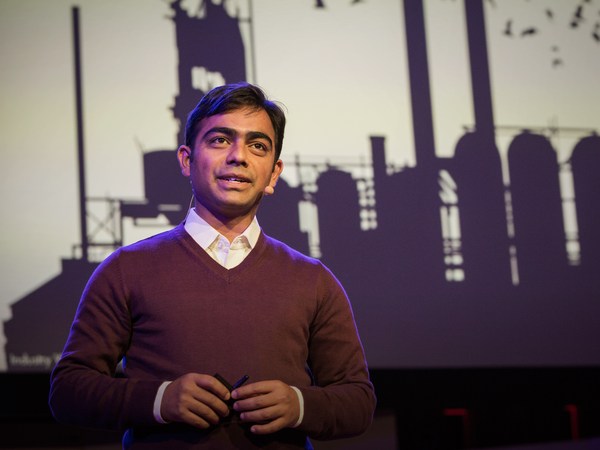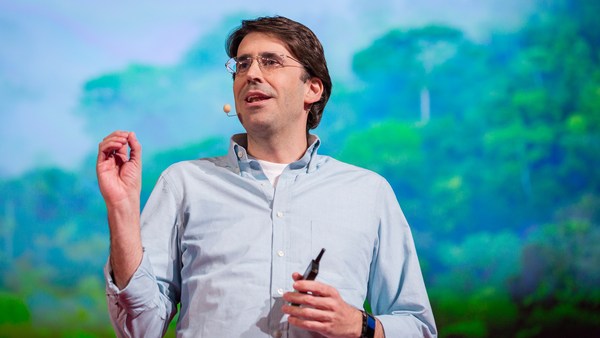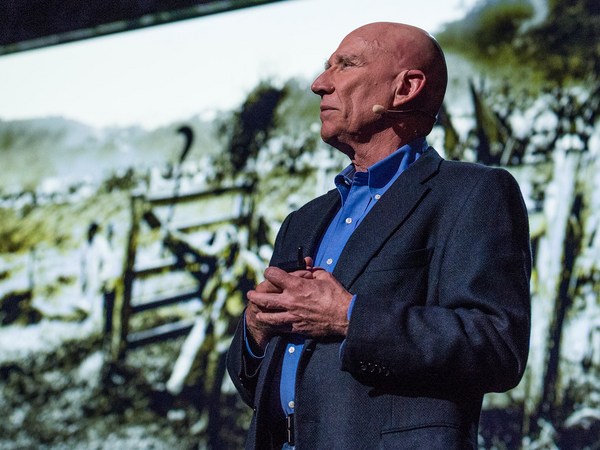A nature's superpower. Sounds great, right? But what does it mean? In Brazil, achieving superpower status goes far beyond renewables and green tech. It starts with fundamentally redesigning our relationship with nature. Over half of global GDP depends on everything nature provides for free. The air we breathe, the water we drink, the stability of our climate. That's why we're bringing nature to the forefront of policy, from international diplomacy to economic planning. It's easy to understand our reasons. Brazil hosts the biggest tropical forest on Earth. We have one of the widest and longest rivers on the planet. We're more biologically diverse than any other nation, with more kinds of plants and animals and microbes and fungi. Well, you get the point.
I'm an entrepreneur, and I've seen the path for how Brazil and other countries can truly become nature's superpowers. But before we go there, we need to overcome big challenges. And the biggest of them all is deforestation.
Over the past 40 years, an area larger than California has been cleared to make way for progress in Brazil. And what makes this problem more challenging is that over 90 percent of deforestation in Brazil is illegal. Trees cut down today are connected to illicit economies like land grabbing, wildlife trafficking, illegal gold mining, and dodge agriculture and ranching practices. These environmental crimes are a big business, generating around 280 billion dollars a year in illicit profits globally. And all of this illegal deforestation has planetary consequences, taking our carbon forest storing too close to the point of no return. So we need to change this up, because this is destabilizing our food production and our water and climate security.
I've spent the last two decades preventing and reducing crime, including those below the forest canopy. My team supports police, prosecutors, financial crimes experts to track illegal products and follow the money across the Amazon basin. But here is the truth. We can't police our way out of this problem. We are just too big. The Amazon alone is larger than the European Union. So yes, of course, we need better policing and prosecution.
But above all, we need to make standing forests more valuable than cleared land. We urgently need a new economic paradigm that recognizes the value of everything nature gives us, like forests, but also water, soil, minerals and clean air. This new model should leverage our natural capital and create entirely new economies that work with nature and not against it.
And the good news is that this isn't wishful thinking. It's already happening. And the Green Bridge Facility that I founded is at the frontier of this agenda. So let me share with you a few of the steps Brazil is taking to become a nature superpower.
So first, make nature core to your national identity. Brazilians are finally embracing our tropical forests and other ecosystems. Nature is being mainstreamed into national, regional and global commitments and plans. In 2023, the Brazilian government announced an Ecological Transformation Plan an investment platform. A centerpiece of this strategy involves creating a truly nature-based economy. A point I'll come back to. At the regional level, Brazil is working with our eight Amazonian neighbors to scale up conservation and sustainable development. Brazil is also exporting nature-positive priorities to the global policy arenas like the G20, BRICS and the UN Nature and Climate conferences.
Second, build an inclusive and innovative bioeconomy. New bioeconomies that promote nature-based supply chains are sprouting up across Brazil, from food to cosmetics and textiles. And what makes Brazil's approach to bioeconomy powerful is that it's rooted in Indigenous and local knowledge. The country is creating partnerships with multilateral and national development banks to create and speed up bioeconomy value chains and jobs. On the ground, transformation is being led by impact accelerators like AMAZ and by a new generation of companies. One of them is Natura, a global pioneer in the cosmetics sector. Natura puts a premium on sustainably harvesting Amazon ingredients while empowering traditional populations who depend on the forest. They recently partnered with a forest intelligence company called Biodiverse, and together they mapped the largest inventory of forests ever undertaken in Brazil. And they did this in record time, completing in six months a task they say would normally take 25 years. With satellites, drones and AI, they improved identification of products sustainably increasing the yields of harvesters who depend on the forest. They are part of a growing ecosystem of Brazilian entrepreneurs and philanthropists like the Arapyaú Institute that are connecting harvesters to responsible buyers, from restaurant holdings like Grupo Trigo to bean-to-bar chocolate makers like Dengo.
Third, create a new economic sector focused on nature restoration. To achieve our Paris Agreement commitments, Brazil has to get to zero deforestation by 2030 and restore 12 million hectares on the way. It's a kind of natural industrial policy. Restoring such a big area could generate around 140 billion dollars and up to 2.5 million jobs. These are big numbers. And to speed this up, the country has launched public-private partnerships to protect, restore and sustainably manage massive public forest concessions. Brazilian restoration start-ups are also scaling up carbon capture and high integrity credits like re.green and Belterra with their ecological and agroforestry models. Because, after all, being a nature's superpower isn't just about protecting and restoring nature, it's also about creating a new economic sector in a way that is better for the people, cheaper and more scalable than other carbon-capture alternatives.
And finally, make nature a high-integrity asset class. Brazil is also pioneering nature finance innovations to unlock resources. Carbon credits, they're just the beginning. Biodiversity units, payments for ecosystem services and sustainability-linked bonds are also emerging to jumpstart nature markets. One compelling idea is Brazil's Tropical Forest Forever Facility. The TFFF, as we call it, features a new 125 billion dollar fund that will support long-term forest conservation. The fund will pay tropical forest countries and reward frontline communities for every hectare of forest they keep standing or restore.
Becoming a nature's superpower doesn't happen by chance. It demands bold leadership, investment in the bioeconomy, prioritizing nature restoration and sustainable financial innovation. For this to happen, we must recognize that forests and nature are worth far more alive than dead. And if Brazil succeeds in building these new economic models that truly value nature, many other countries can follow. And as a result, we all win.
Thank you.
(Applause)

